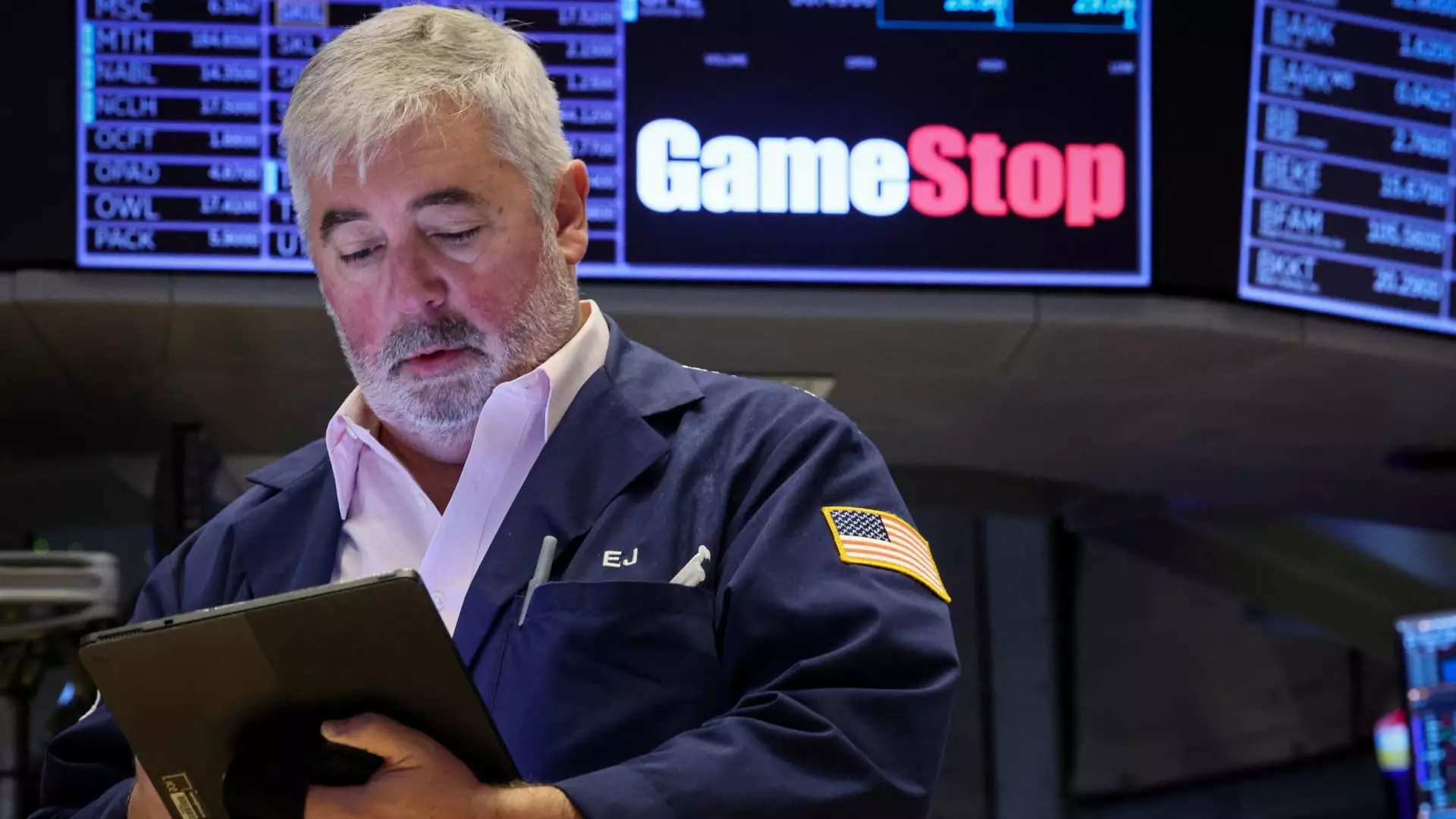The recent announcement of GameStop’s foray into the world of cryptocurrency has sent shockwaves through the market. After a brief surge in stock value, shares plummeted by over 15% in a single day following the company’s plans to raise a staggering $1.3 billion through convertible senior notes to fund its Bitcoin purchases. This rapid decline poses a glaring question: is this a bold step into innovation or a desperate attempt at survival fueled by the hype surrounding cryptocurrencies?
GameStop’s decision reflects a broader trend where companies are increasingly looking to digital currencies as a means of investment. However, this move runs the significant risk of diluting shareholder value and creating an overreliance on the volatile nature of digital assets.
The Dangers of Convertibles and Mistrust in the Meme Phenomenon
Analysts, including Michael Pachter from Wedbush, have raised red flags concerning the sustainability of GameStop’s stock prices amidst such risky financial maneuvers. With the introduction of 46 million additional shares through the convertible debt, the company’s market cap seems inflated at a whopping $12.7 billion. This valuation not only eclipses GameStop’s cash holdings but also invites skepticism from investors who remember the company’s previous meteoric rise and fall.
A key argument against this investment strategy is the uncertainty surrounding the “meme stock” phenomenon that brought GameStop to the forefront of market attention. Pachter’s assertion that investors will need to maintain faith in the meme energy for the next five years raises eyebrows. Are we witnessing a sustainable business model, or merely a flash in the pan looking for a digital crutch in uncertain times?
Learning from the Market’s Most Notable Players
GameStop’s venture draws a parallel to MicroStrategy—a company that has successfully adopted Bitcoin as part of its corporate strategy. However, the two situations are drastically different. MicroStrategy’s Bitcoin investment has risen in value significantly, while GameStop’s stock is arguably inflated based on sentiment rather than stable revenue streams. With GameStop’s current valuation being more than double its cash reserves post-debt issuance, the risks become more pronounced.
It’s critical to understand the ramifications such a move could have on GameStop’s reputation. The company, which has been the poster child for retail investor enthusiasm, might find itself at a crossroads where it must prove that its drift into crypto isn’t merely a gamble, but a legitimate pathway for growth. If not carefully managed, this could quickly create disillusionment among investors who felt empowered by the success of the initial meme journey.
Should Investors Be Worried? A Controlled Outlook
This precarious balance reveals a fundamental issue within GameStop’s strategic roadmap. While some might perceive the adoption of cryptocurrencies as forward-thinking, it carries the inherent risk of volatility and instability—something that the gaming retailer may not be equipped to manage. For the average retail investor keen on sustaining the momentum that propelled GameStop into the limelight, the upcoming months will be crucial in determining whether this path to Bitcoin will solidify its position or lead to a regrettable nosedive.
Ultimately, while skepticism and concerns regarding a speculative bubble abound, it is the company’s next moves that will hold the most weight. As GameStop navigates this uncharted territory, it risks losing not just its stock value, but the very essence of what once made it a household name.

